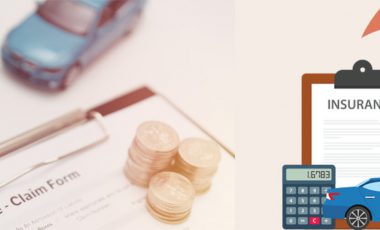Are Rodents Chewing Wires Covered by Car Insurance? Detailed Guide
Regular maintenance procedures like oil changes, topping off fluids, and having your tires rotated surely spring to mind when you consider what it takes to keep a car in good running condition. However, preventing a potential rodent infestation is a safety issue that you might not consider until it is too late.
Small rodents like mice, rats, squirrels, and chipmunks have been known to climb up onto the hood of a car and gnaw on the wiring, which can result in catastrophic damage.
You could be dealing with a serious issue if a rat found refuge in your hood and spent its time chewing into the wires. Since the wire systems in your car are crucial to its proper operation, rodent damage to the wiring may be quite expensive to fix. You might be thinking, “Does car insurance cover rat damage?” when faced with such costly repairs. This guide will resolve all your queries.
Why does rodent chew car wires?
According to pest control firms, rats chew on automobile cables simply because they are always chewing. Rodents must continually chew to wear down their developing teeth in order to prevent them from becoming excessively long or sharp.
It was a common misconception for a very long time that rats preferred to chew on the materials found in automobile wiring. If a mouse has already established a home in your neighborhood, its motivation to chew through your wires is merely one of convenience because the wires are nearby and simple to get to.
Does car insurance covers rodent damage to an engine?
Yes, under the own damage section of the comprehensive car insurance, rat damage is covered. Due to the fact that the damage was caused by accidental, observable external causes, the claim for rodent damage car insurance is allowed.
What kind of damage rodent does to your car?
- Chewed-up and frayed wires: The insulated coating on your car’s electrical system is particularly attractive to rodents seeking to care for their teeth. They have the ability to gnaw through the protective coating, exposing the wires and causing serious problems.
- Damaged automobile seats: Shredded chairs with apparent indications of shredding and biting are a surefire indication of a rodent infestation. Rodents like chewing through virtually any material, particularly your plush automobile seats.
- Blockage in vents for air: Having your vents examined if you’re having trouble getting hot or cold air through them might help to keep your automobile safe. Rodents frequently like exploiting the garbage and loose stuff found in your automobile to establish nests in the air vents.
- Droppings from mice: Even in their own nest, rodents will pee and defecate everywhere. Not only does this start to smell, but breathing it in might be harmful. Additionally, some rodents can transmit hantavirus and salmonellosis to people.
Which insurance covers rodent damage?
Type of car insurance known as comprehensive coverage protects your vehicle against damage that can occur even while it is not being driven, including damage from fire, severe weather, vandalism, theft, falling items, and, yes, animal damage. If you were wondering does car insurance cover hitting an animal? Then we hope you got the idea of that too.
To find out if your comprehensive insurance covers rodent damage, examine your policy and the specifics of your Comprehensive cover rodent damage section. However, rodents eating through your car’s electrical wiring are usually covered by comprehensive insurance.
Can rodents do electrical damage?
Yes, rodents can do a lot of electrical damage to your car. Rats enjoy chewing on the wiring in cars, which can lead to a variety of issues. They may even chew through the wiring, which would result in the engine seizing up or beginning to smoke.
How to file a claim for damages caused by rodent?
Finding out what sort of damage your car has and how severe it is should be your first priority. Rodent damage can appear in a variety of ways. Your engine light may come on or your car may not start if rats have damaged the electrical wiring in your vehicle.
Even if your car may have rat droppings or paw prints surrounding it, you should still take it to a reputable technician to be sure that mice are to blame for your problems. Contact your insurance provider via phone or online and inform them that your automobile has rodent damage and you intend to make a claim.
Make sure you have everything on the following list before filing a claim:
- The declarations page and your policy number.
- Pictures of the rodent ruins.
- Information concerning the garage where your automobile is kept and the date the damage occurred.
An insurance adjustor will be assigned to you and will provide you with guidance on what to do next. Save everything as you go through the claims process, including receipts, pictures of the damage, and any other paperwork that may be necessary.
Most likely, your car insurance company has a list of approved repair facilities that you should choose. While your insurance may not insist that you use one of their approved repair facilities, doing so might speed up the process and ensure that you receive your full settlement.
How To Protect Your Car From Rodents?
Tips to protect your car against rodents
- Move your car in another spot: If you can, store your automobile inside your garage, where rodents and mice will find it difficult to get access to your car.
- Eliminate food sources: Since food is the primary source of insect attraction, keeping it away from your automobile may help.
- Transfer or catch the rodents: Use traps or sonic repelling equipment to attempt to catch or scatter the rats. Repel or capture the rodents.
- Use chemical deterrents such as “rodent tape”: Wrapping the wires in hot tape has proven effective for some folks with rat issues in keeping rodents away from their cars. Sprays that are sour or bitter, which rats also dislike, can be effective.
- Move your car regularly: Animals are prone to moving into abandoned vehicles, so move your automobile around frequently.

We generated 12,100,000+ Quotes (...counting), Helping People to Save Money and Time.
Editorial Guidelines: The above is meant as general information to help you understand the different aspects of auto insurance. This information does not refer to any specific auto insurance policy. Coverages and other features vary between insurers, vary by state, and are not available in all states. References to costs of coverages/repair, average or typical premiums, amounts of losses, deductibles, etc., are indicative and may not apply to your situation. We encourage you to speak to our insurance representative and to read your policy contract to fully understand your coverages.
Featured Posts

Cheapest Car Insurance After a DUI: Discover Wallet-Friendly Options

Cheap Liability-Only Car Insurance for 2024: Complete Guide

